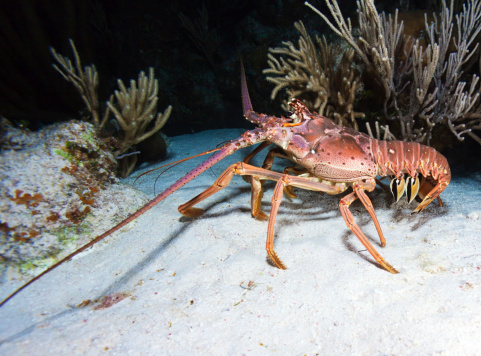“Overall, plastic and genetic variation in amphibians and reptiles could buffer some of the formidable threats from climate change” and could thus “dampen some of the doom and gloom associated with research on biotic responses to climate change”… Read More
Does Temperature Change Necessarily Imply Stream Flow Change? (10 Jun 2014)
This question is investigated in a study of the U.S. Colorado River Basin… Read More
The Virtual Water Content of Chinese Crops (10 Jun 2014)
According to the authors of this study, “climate change is likely to benefit food security and help alleviate water scarcity in China”… Read More
5,000 Years of Great Basin Temperatures Derived from Tree Rings (10 Jun 2014)
As has been demonstrated time and time again, by a variety of means employed by a host of different researchers, late 20th-century and early 21st-century temperatures were neither unusual, unnatural nor unprecedented… Read More
Dietary Plasticity as a Strategy for Surviving Changes in Climate (11 Jun 2014)
A new study describes a prime example of the phenomenon… Read More
Twenty-five Climate Models Can’t All Be Wrong … Or Can They? (11 Jun 2014)
A recent major review suggests they can all be wrong … even when they appear to be right, because “areas of substantial agreement among models may not imply more confidence that projections are correct, as common errors or deficiencies in model parameterizations may provide false confidence in the robustness of future projections”… Read More
The Impacts of Elevated CO2 on Potato Biomass and Quality (11 Jun 2014)
For the 96% increase in the air’s CO2 content employed in this study, new potato tuber biomass was 49% greater in the CO2-enriched treatment, both starch and soluble sugar contents were higher in the high-CO2 air, and “elevated CO2 protected the leaves from ozone injury.”… Read More
Marine Phytoplankton Evolving to Cope with Ocean Acidification (17 Jun 2014)
According to the authors of this study, “every indication so far suggests that marine phytoplankton have the potential to evolve in response to global change, both by sorting standing variation in fitness and by using de novo mutation.” And, therefore, they say the likelihood that “large phytoplankton populations can evolve on timescales of years or decades is not surprising”… Read More
Simulations of ENSO by CMIP5 Climate Models (17 Jun 2014)
After literally decades of hundreds of researchers attempting to create a mathematical model capable of reasonably accurately representing the full spectrum of the workings of Earth’s global climate system, there likely is still a long, long road yet to be traveled before a satisfactory mathematical construct will be realized… Read More
Evolution or Phenotypic Plasticity: How to Survive Climate Change (17 Jun 2014)
Both phenomena have been documented to occur in nature. And both seem to do what is needed… Read More
Fish Adjusting to Climate Change by Plastic & Evolutionary Means (17 Jun 2014)
There is “abundant evidence that many traits in fish can respond rapidly to changes in environmentally driven selection pressures and that these traits are strongly plastic”… Read More
Modeling Arctic Sea Ice Albedo Under Summer Conditions (18 Jun 2014)
How well does the community of CMIP5 models perform in this regard? Not very. The authors of this study conclude “the Arctic climate system can thus not correctly be simulated (other than with compensating errors) if the large-scale atmospheric and oceanic circulation determining the input of mass, heat and momentum into the Arctic is not correctly simulated.” And they also remark that “strong tuning of the albedo in order to achieve realistic Arctic ice and climate conditions in 20th century simulations might lead to unrealistic amplification rates in future simulations”… Read More
Responses of Terrestrial Invertebrates to Climate Change (18 Jun 2014)
“Overall, depending on the species, both genetic and plastic responses exist in phenology and other life-history traits,” and it is clear “these traits are changing in response to climate”… Read More
Responses of Freshwater Invertebrates to Climate Change (18 Jun 2014)
“Besides genetic changes, also phenotypic plasticity and evolution of plasticity likely will contribute to observed phenotypic changes under global warming in aquatic invertebrates,” which suggests that freshwater invertebrates should be able to weather whatever challenges (in the form of changes) Earth’s climate may thrust upon them… Read More





